- Survey says police first while judiciary 3rd most corrupt department.
- Tendering & contracting emerge as 2nd most corrupt sector.
- Education climbs to 4th rung of the corruption ladder since 2021.
ISLAMABAD: A fresh survey Friday revealed that police continue to occupy the top rung of the corruption ladder in the country followed by tendering & contracting, judiciary, and education —which climbed to 4th since the last poll carried out in 2021.
These are the findings of Transparency International Pakistan’s (TIP) National Corruption Perception Survey (NCPS) 2022.
The NCPS 2022 released at 01:00 am on Friday also showed no confidence in anti-corruption entities including National Accountability Bureau (NAB). At the national level, the majority of people considered anti-corruption institutions’ role as “ineffective” in curbing corruption in Pakistan, the report said.
Key findings of the NCPS 2022:
01: The provincial breakdown of the three most corrupt sectors reveals the following:
In Sindh, education remained the most corrupt sector, police was seen as the 2nd most corrupt, while tendering and contracting was the 3rd most corrupt. In Punjab, police remained the most corrupt sector, tendering and contracting were seen as the 2nd most corrupt, while the judiciary was the 3rd most corrupt.
In Khyber Pakhtunkhwa (KP), the judiciary remained the most corrupt sector, tendering and contracting was seen as the 2nd most corrupt, while the police department was the 3rd most corrupt.
In Balochistan, tendering and contracting remained the most corrupt sector, police were seen as the 2nd most corrupt, while the judiciary was the 3rd most corrupt.
02: At the national level, the majority of 45% of people considered anti-corruption institutions’ role as ‘ineffective’ in curbing corruption in Pakistan. In Sindh, 35% of Pakistanis considered the NAB’s role as effective in curbing corruption. In Punjab (31%), KP (61%), and Balochistan (58%) Pakistanis considered the role of “none of the anti-corruption institutions” to be effective in curbing corruption in Pakistan.
03: Pakistanis continued to believe that corruption in public service delivery is high. According to the citizens, the three most corrupt public services for which people have to pay bribes are contracts of roads (40%), access to uninterrupted electricity (28%) and access to clean drinking water (17%). In Sindh, Punjab and Balochistan, maintenance of roads tops the list of public service delivery perceived by the citizens to be the most corrupt. While in KP, the majority of citizens (47%) consider access to uninterrupted electricity to be the most corrupt public service delivery.
04: The three most important causes of corruption, according to NCPS 2022 are delayed decisions in corruption cases (31%), use of state institutions by governments for their gain (26%) and incompetence of the government (19%). In Sindh (43%) and Punjab (29%), citizens consider the “use of state institutions by governments for their personal gain” as the most potent reason for corruption in Pakistan. While KP (43%) and Balochistan (32%) consider “delay in decisions of corruption cases” as the main reason for corruption in Pakistan.
05: As measures to curb corruption, 33% of Pakistanis at the national level say corruption should be punishable by life imprisonment, and 28% of Pakistanis say all government officials, politicians, military officers, judges etc. should disclose their assets to the public, and 25% say corruption cases should be heard in NAB, FIA and anti-corruption courts on daily basis and decided in 6 months.
In Sindh, 39% of citizens believe that to curb corruption, corruption cases should be heard in NAB, FIA and anti-corruption courts daily and decided in 6 months. In Punjab (32%) and KP (38%) citizens feel that corruption should be punishable by lifetime imprisonment to combat corruption. While in Balochistan, 33% of citizens opine that to control corruption, the government should immediately make it mandatory for all government officials, politicians, military officers, judges, etc, to disclose their assets to the public.
06: The survey also sheds light on the devastating floods of 2022 and the need for transparency and accountability in the utilisation of funds and response to floods. At the national level, about 62% of Pakistanis considered the role of local NGOs as effective and better during the recent floods in 2022.
07: Large population of Pakistanis (70%) believes that the funds/aid were not distributed transparently during the recent floods in Pakistan and 60 % of Pakistanis believe that the donations and relief operations of the NGOs working in flood relief activities should be more transparent. Overwhelming population 88% of the population believes that details of donations and expenditures of all NGOs should be publicly available on their websites.
08: Significant portion of the population (77%) finds it difficult to obtain public information from public bodies under Right to Information laws. The provincial breakdown reveals that in Sindh (87%), Punjab (83%), KP (71%) and Balochistan (68%) citizens face difficulty when it comes to accessing public information from government departments.
09: Majority of Pakistanis (64%) say that Pakistan has not benefited from the IMF agreement dated 12th May 2019.
10: At the national level, 54% of citizens believe that the news channel’s reporting is biased.
PM urges need to remove corruption
Prime Minister Shehbaz Sharif tied the country’s turnaround to the eradication of corruption in all its forms, calling the menace a major cause of instability as it was not only undermining the economy but also the administrative structure.
The premier also underscored the need for doing away with the practice of using corruption as a tool for political victimisation. He said that the previous government jailed political opponents on the basis of frivolous corruption allegations.
“This practice should be ended so that anti-corruption institutions may strengthen by performing truly for the elimination of corruption without being misused,” he commented.
He said the deterioration of social values also gave way to corruption in any society.
PM Shehbaz said the corruption not only risked the flow of money into the hands of miscreants to disrupt the country’s peace but also led to the weakening of national institutions creating public mistrust in governance.
He said the Pakistan Muslim League-Nawaz (PML-N) government always took practical steps to eradicate corruption. The ratio of corruption witnessed a downward trend during the party’s government from 2013-18. Moreover, no one could prove the corruption of a single penny by the PML-N government which executed projects of billions of dollars under the China-Pakistan Economic Corridor.
He also urged all the political circles to prepare a clear roadmap to get rid of corruption.
He said in light of Islamic principles, efforts should be made for strengthening the institutions to do away with the scourge. “We will have to ensure rule of law besides social protection as well as social values.
“All of us will have to work collectively for a corruption-free Pakistan. Only this way, Pakistan will be able to achieve progress. On this International Anti-Corruption Day, let us pledge to realise this dream,” he urged.
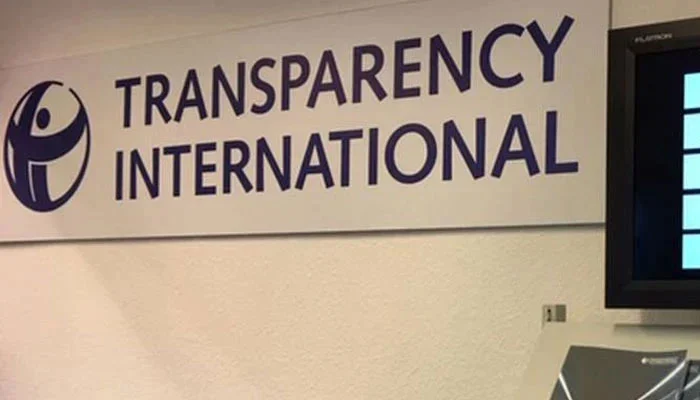

 Business8 hours ago
Business8 hours ago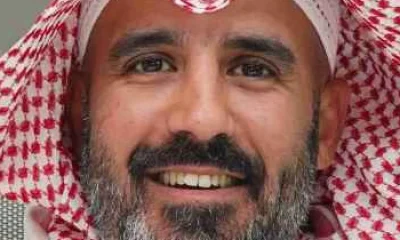
 Business8 hours ago
Business8 hours ago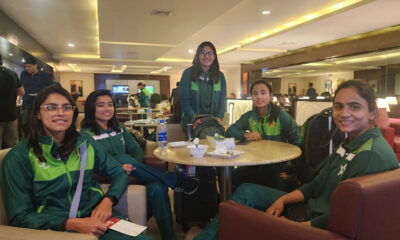
 Latest News8 hours ago
Latest News8 hours ago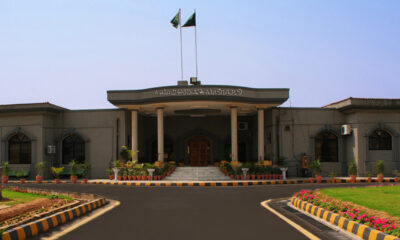
 Latest News8 hours ago
Latest News8 hours ago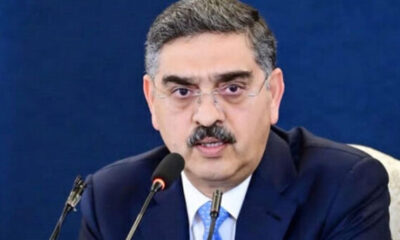
 Latest News8 hours ago
Latest News8 hours ago
 Pakistan8 hours ago
Pakistan8 hours ago
 Business9 hours ago
Business9 hours ago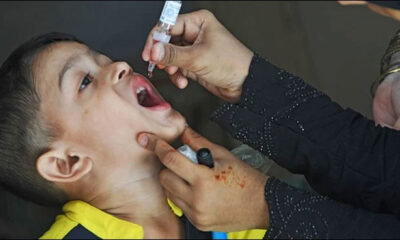
 Latest News8 hours ago
Latest News8 hours ago









